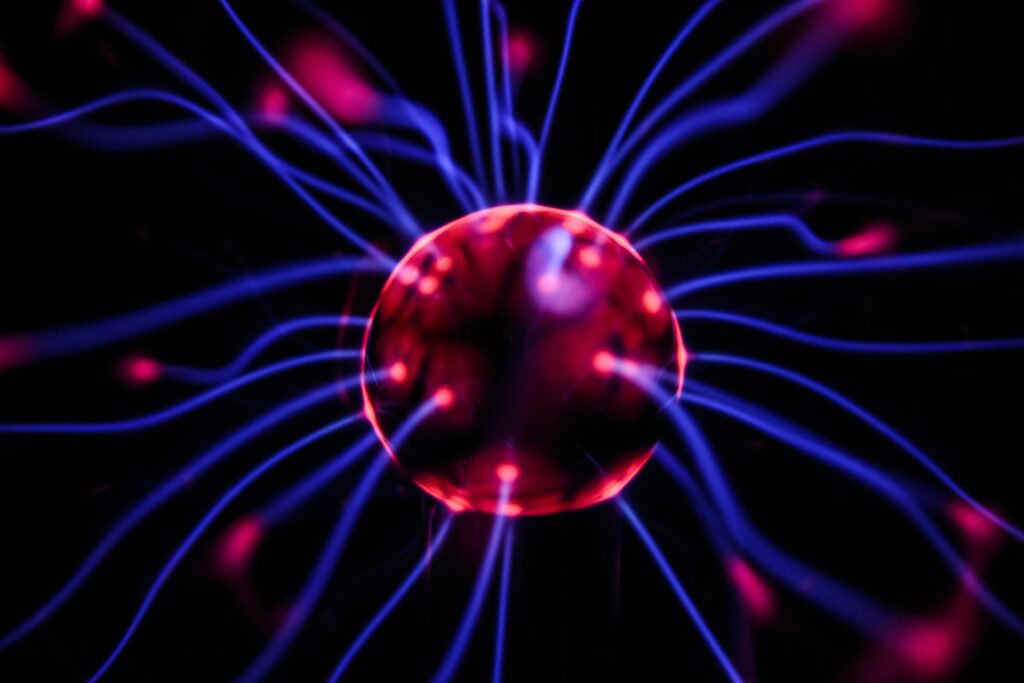
Methods for Dissolving Brain Fog
If you’re anything like me, you know the struggle of daily ‘‘brain fog’’. It’s like that fog has just rolled in and suddenly you’re
Neuroplasticity – the brain’s ability to rewire and restructure itself. When your brain’s neuroplastic capabilities are strong, it promotes your brain’s physical ability for adaption through reorganization. This may sound complicated, however, manipulating the neuroplastic workings of the brain is easier than you may think. Doing this is often called ‘rewiring the brain’. When we rewire brain connections, your brains potential is endless!
In this article, we will go over how to rewire brain connections, helping fight against addictive tendencies and improve your life as a whole.
Your brain is basically a muscle that needs to be constantly exercised. When it is not exercised, it stops making new connections, which means the same neurons will continuously go down the same pathways, which won’t allow the brain to make new connections and pathways. This is believed to be addiction.
Let’s use smoking as an example. Every single time you light a cigarette, you are sending signals throughout your brain and body to do so. Every time your hand moves up and down from your mouth to take puffs of your cigarette, you are sending signals throughout your brain and body in order to do so. Every single time your brain sends those same signals, neurons shoot down the same pathways over and over and over again… As time goes on, you severely wear in those pathways, making your brain naturally inclined to use them again and again. The more worn in a pathway is, the more you mentally crave to use the pathway again.
The brain works in repetition. The more you repeat an action, the more you are naturally driven towards repeating the action again. In doing so, you are blocking the neuroplastic nature of your brain. This would explain why individuals suffering from addiction have an unexplainable urge and craving to exercise their addiction, even after kicking the physical side of the addiction. This is where learning how to rewire brain connections is helpful for victims of addiction. This is also what is believed to give someone an ‘addictive personality’ which is where someone has a vulnerability to addictive tendencies.
Not only can substances and activities be addictive, but so can depression. If you have suffered from depression or know someone who has, then you may be aware of the ironic comfort of being depressed. Often, when we suffer mentally for long enough, we find comfort and safety in it!
We are all know that therapy has been an effective tool for many years in regards to treating depression. What if I told you that there is an alternative route to treating depression? For years, we have thought the best way to tackle depression is by sitting someone down and talking through all of their issues, sifting through all the emotions these complications bring up. While it is extremely important to talk things through and feel your emotions, this method often leads to individuals dwelling on emotions for longer than necessary, causing unneeded additional pain. In fact, some individuals claim that therapy has created more problems for them than it has fixed. Of course, this is not the case for everyone and many people have gained positive results from traditional therapy. However, this is not the case for everyone which is why a new approach is needed for those that do not benefit from traditional therapy. Let’s look at this new method and how to rewire brain connections with it.

Essentially, metacognitive therapy is the opposite of what you would expect from a therapeutic method. Instead of talking through all your problems and digging deep for all the emotions that it naturally creates, metacognitive therapy focuses on how we process life’s situations. When you go in for a metacognitive therapy session, you will not be discussing your problems in detail, instead, you will be training your brain how to process unfortunate circumstances whilst they are occurring, rather than allowing your brain to naturally let the situation get the better of you. Although our brains work in our favour a lot, our brains, unfortunately, often don’t work in our favour when it comes to our emotions. Thanks a lot, biochemistry!
Metacognitive therapy allows us to gain control over our mind and its processing. Instead of letting it process things however it ‘naturally’ would, we can learn how to process things in a productive and helpful matter by taking control over our processing functions.
This is often mistaken by pushing all negative emotions to the side and using ‘positive positivity’ as a coping mechanism. However, this is not at all the case. Instead, it is simply understanding the power of perspective and how we are truly in control of which perspective we choose to hold. This type of therapy isn’t only about mental processing, it is also about avoiding overthinking when possible. Overthinking is a huge source of unnecessary pain for many. Lots of us may think ‘But I can’t help but overthink! I literally cannot stop myself from overthinking!’. This is a myth that metacognitive therapy debunks by helping you settle into your own power and take control over your thoughts because the truth is you are in control, even if you don’t think so.
Interestingly, two people can experience the exact same thing, yet one person may let it negatively affect them for the rest of their life while the other doesn’t let it affect them negatively for long. Whether we like it or not, everything that happens to us affects us greatly. Metacognitive therapy is there to teach you how to let something affect you in a positive way instead of a negative way. You could say this type of therapy is another form of powerful mindfulness.
There are so many different effective tools to rewire the brain… But have you thought about using psychedelics to do so? Thanks to a study done by Beckly Foundation, we finally have the worlds first image scan of the human brain on LSD. This study has shown us a lot about how psychedelics affect our physical brain. The basic conclusion was that LSD not only lights up an alarming amount of the brain, but it also results in a magnificent increase in communication between networks in the brain that are usually highly segregated. This was an astounding discovery for the science community and has opened the door for a lot of further questions that could lead to a better understanding of consciousness. The fact that LSD has the ability to allow parts of the brain that have never communicated before to connect is beyond remarkable. You can say that this study confirmed that LSD does indeed rewire the brain in one sense or another.
Aside from taking larger doses of psychedelics to rewire brain connections, microdosing is a great option to achieve this without having to brave the often intimidating effects of the psychedelic experience. In smaller microdosing studies, we have learned that microdosing psychedelics such as psilocybin not only increases cognitive ability but it may also promote neuroplasticity (see above text) in the brain. That being said, psychedelics hold the potential to literally rewire your brain! As time goes on and more studies are conducted, we will have a better understanding of this.

There are so many different ways to rewire the brain and no matter who you are, you have the ability to do this. Understanding our neurological network and its suggestibility can set us free from unnecessary suffering. If you were an electrician and spent time wiring a system for lights in a house only to find out that the main floors lights flicker, would you leave it like that? Of course not! You would likely go back and rewire the electrical system until it works in a functional way. So why would you not want to rewire your brain so it can function at its highest ability? You owe it to yourself to live in a head that is wired in your favour.
We cannot escape suffering, however, we can definitely minimize it. No one can make you rewire your brain, only you can make the decision to take the steps. You just have to be ready to say goodbye to old ways, accept new perspective, and enjoy your rewired brain.

If you’re anything like me, you know the struggle of daily ‘‘brain fog’’. It’s like that fog has just rolled in and suddenly you’re

Throughout human history, psychedelics have been subjected to all manner of different labels, judgments, and stigmas. For the largest portion of human history, psychedelics have

Lion’s Mane is a culinary and medicinal mushroom, and like many other edible fungi, they have essential nutrients and important health benefits. However, this particular

Written by Sydney Waldner Let me introduce you to the holy grail of medicinal mushrooms; Turkey tail. If you are a forest lover, there

What are truffles? Magic truffles are a species of psilocybin mushrooms. However, technically by law they are not placed in the same category as ‘mushrooms’.

Is microdosing real, or is it all a placebo effect? Microdosing is when you take a sub-pharmacological dose of a substance. Often a psychedelic
GET 10% DISCOUNT WITH NOTIFIED ABOUT THE LATEST NEWS AND UPDATES. NO SPAM, WE PROMISE!
FREE Tracked shipping on orders over €250 to EU countries.
Monday- Friday 8.30am- 5pm (CET)
A range of options available
Guaranteed delivery or your money back